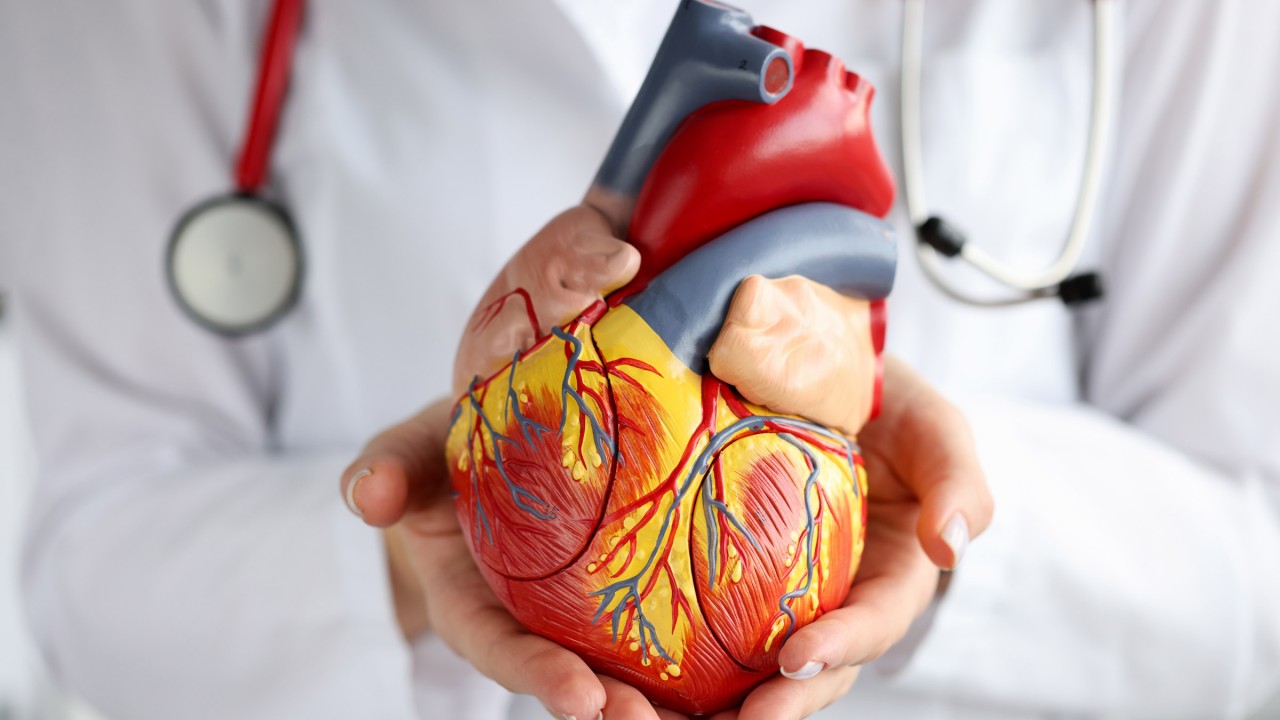Dr Aref Arjomand MD FRACP
Consultant & Interventional Cardiologist.
In the Heart of Geelong
Granada Medical Centre
Level 4, 88 Myers Street Geelong 3220
P: 03 4245 2029
Fax: 03 5229 8288
E: reception@bcv.net.au
About Barwon Cardio Vascular
Dr Aref Arjomand is a Consultant and Interventional Cardiologist with a special interest in PCI as well as transfemoral aortic valve replacement and left atrial appendage closure.
A Graduate of the Free University of Berlin, Germany, Dr Arjomand undertook Cardiology Training at Royal Perth Hospital, (FRACP) Western Hospital, Footscray (PCI fellowship) as well as St George Hospital in Hamburg (complex PCI, TAVI, LAA closure) and has experience in simple CTO procedures, Mitra Clip and ECMO resuscitation.
Dr Arjomand is also a member of the European Society of Cardiology as well as a board certified cardiologist in Germany (DGK) and German Medical Council and the RACP.


Servicing the Geelong and Surf Coast Community
We strive to ensure the highest quality of care for our patients and work closely with our patients and their referring Doctors to ensure comprehensive and thorough investigations and continuation of care.
Each referral is triaged by Dr Arjomand to ensure a timely response therefore allowing us to attend to both urgent and non-urgent reviews.
In collaboration with St John of God and Epworth Geelong we can provide a range of cardiac investigations and use the latest evidenced based diagnostic technologies
What we do
Welcome to Barwon Cardiovascular – the rooms of Dr Aref Arjomand – Consultant and Interventional Cardiologist.
Dr Arjomand provides high quality cardiac care to the communities of Geelong and the Surf Coast.
With over eight years experience in Cardiology , he specialises in interventional and structural heart disease, two of the most dynamic and evolving fields in medicine.
Dr Arjomand’s passion is to improve heart health and the quality of life for his patients, using the latest techniques and technologies in the field.
He has completed advanced training and certifications in structural heart interventions and imaging and has performed hundreds of procedures for complex and challenging cases.
Dr Arjomand also works with a multi-disciplinary team of experts to ensure patient safety and optimal outcomes. In addition he contributes to medical education and internal medicine as part of his professional development service.

After your initial consultation, Dr Arjomand can request further investigations and tests where appropriate, including but not limited to:
Exercise Stress Test
An exercise stress test is performed to see show well your heart copes with exercise.
During your cardiac exercise stress test, you’ll walk on a treadmill or cycle on an exercise bike until you reach your “target heart rate”- which is 85% of the maximum heart rate predicted for your age. Every 3 minutes, the speed, incline and resistance of your treadmill or bike will increase, up to 15 minutes maximum.
During the test, one or more medical professionals will monitor your ECG, heart rate, blood pressure and heart rhythm. They will stop the test if:
- You develop chest pain
- Your blood pressure is becoming a concern
- The ECG shows your heart isn’t getting enough oxygen
- You become too tired
- You have another symptom that prevents you from exercising
The test takes less than one hour in total.
Holter Monitor
- Holter monitors record your heart beat using electrodes, wires and small machine that attaches to your waistband.
- You may need a holter monitor if your doctor thinks there could be a problem with your heart rate or rhythm. You might have symptoms such as:
– Fainting
– Dizzy spells
– Chest pain
– Arrhythmia (Irregular heart beat)
Blood Pressure Monitor
- Blood pressure monitors are a way of testing your blood pressure for 24 hours.
It shows how your blood pressure relates to your normal daily activities.
It can also be used to diagnose high blood pressure
A small digital Blood pressure monitor is attached to your waste and a blood pressure cuff is attached to your arm. The cuff inflates and deflates over the course of the day at regular intervals.
This is a very accurate way of measuring blood pressure.
Pathology Requests
- Pathology requests are usually ordered at the time of the consultation. Generally we do not have requirements for you to have pathology tests prior to your appointment, however if that is the case then we will be in touch
CT-CA (CT Coronary Angiogram)
- A CT Coronary Angiogram is a scan that records pictures of your heart using a method where dye is injected into your veins (usually via the arm) and the dye highlights any blockages in your coronary arteries.
Or if further intervention is required then Dr Arjomand can organise further treatment including but not limited to:
Percutaneous Coronary Intervention (Stents)
- PCI and implantation of Stents
Percutaneous Coronary intervention (PCI) treats narrowed or blocked arteries.
It is design to increase the blood flow to the heart muscle
A balloon inflation is used for this purpose and to insert stents if required.
DC Cardioversion
- DC Cardioversion is a medical procedure used to restore the heart back into a normal rhythm A machine is used to deliver low and controlled energy shocks to the chest with instant results.
Transthoracic Echocardiogram
-
(TTE) is also known as a Cardiac Ultrasound or “Echo”
This is a diagnostic test that captures moving pictures of your heart using high frequency sound waves. It is used to assess clinical situations such as:
- Shortness of breath
- Heart murmers
- High blood pressure
- Atrial Fibrillation
- Stroke or TIA Transient Ischaemic Attack
- Congenital Heart Disease
A TTE usually takes around 30-45 minutes to complete
Dobutamine Stress Test Echocardiogram
-
This is a diagnostic stress test that can be performed if you are unable to do an exercise stress test.
In this test you are given a medication call Dobutamine which will stimulate your heart and make it perform to feel as if you are actually exercising.
This test usually takes around 60-90 minutes.
Appointments
To make an appointment to see Dr Arjomand we ask that you obtain a referral from your GP or Specialist. This enables us to triage your appointment appropriately and in a timely manner, helps with the background information and history of the issue to be treated and enables you to be able to claim a rebate from Medicare.
Medicare will not pay you a rebate without a valid referral.
The Process
Once you receive a referral to Dr Arjomand, please send it to our rooms (or ensure you referring Doctor sends it through).
Dr. Arjomand will assess the referral and then delegate an appointment time frame that is appropriate for the urgency of the referral.
Once this has been delegated, Dr. Arjomand’s rooms will contact you to arrange an appointment as indicated by Dr. Arjomand.
After that, you will be sent (usually via email) the appointment details, confirmation of cost as well as some forms to fill in and return to our rooms (Patient registration and medication Summary)
You can download the forms here:
Patient Registration Form | Medication Summary Form
You will also receive an SMS reminder around one week prior to the appointment.
Cancellations
We are always happy to reschedule when needed.
If, for any reason, you cannot keep your appointment, please just call or email our rooms to reschedule.
If no notice is given and the appointment time allotted is left vacant, a cancellation fee of $60.00 will apply.
Appointment times
Please allow approx. 40 minutes for an initial consultation.
Please allow approx. 20-30 minutes for a review consultation.
Out of Pocket – Inpatient procedures
Depending on the type of procedure, the out-of-pocket costs for a patient can vary.
For Urgent and/or more complex procedures we are guided by the recommendations of the AMA and we charge 75% of their recommended fee per item number and these procedures can have an out of pocket cost of approximately between $1,000.00 – $1,500.00
Non Urgent and routine procedures can have an out of pocket cost of $500.00 as per the known gap agreement with your health fund.
You will be provided with an estimate prior to any procedure and be fully informed.
Gap and out of pocket payments are required to be paid prior to your hospital admission where possible.
